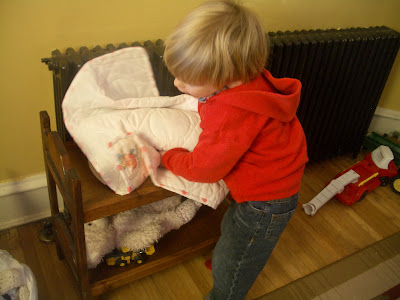I have deep sensory memories of returning home from church as a child, opening the squeaky back door, and sniffing a houseful of roast beef. So satisfying and delectable to come home to! So when I make roast beef, it is usually for Sunday dinner after church.
But roasting beef is not easy.
It seems that generations past knew how to roast beef, but when I look for techniques and even recipes in my cookbooks, I'm so lost. Gradually, after discussing this often with other cooks, I've picked up a beef roasting lexicon and method of sorts. Please add your tips (or trials) in the comments.
How I Roast Beef [credited where possible]:
1. Use a fully thawed beef roast and salt it well the night before you want to roast it [Alice Waters].
2. Drizzle a little balsamic vinegar over the roast when you set it in the roasting pan - it's a tenderizer [Esther Shank]. I use grass-fed beef, which is lean and not as soft as the fattier, grocery store beef.
3. Sprinkle well with pepper, marjoram. Lay onion slices over and around the roast - occasionally, I insert garlic cloves in slits in the roast.
4. Pile scrubbed root vegetables around the roast - bigger vegetables are better because smaller ones will bake into mush. Potatoes, turnips, carrots, mushrooms. Sprinkle those with salt and pepper too.
5. Add 1-2 cups of liquid to the bottom of the roasting pan - water or wine or combination.
6. Cover loosely. I use a black enamelware roasting pan and its lid fits while allowing steam to escape (a tight fitting lid means you are actually steaming the beef - another cooking technique; no lid is what Martha Stewart and Alice Waters recommend and that is actual true roasting, but boy, you have to know what you are doing to roast without steam!)
7. Bake long and slow [my mother]. I do a 3-4 pound roast at 325 for 2.5 to 3 hours. It has a chance to come to room temperature first before the oven comes on, which is what Alice and Martha both recommend.
8. Allow to rest for up to half hour while you make gravy, etc. Slice thinly.
Whew. Maybe we can discuss gravy another time. That's another kitchen skill that is hard to pin down in a recipe, something you have to learn at a cook's elbow before you timidly venture out on your own.

















































